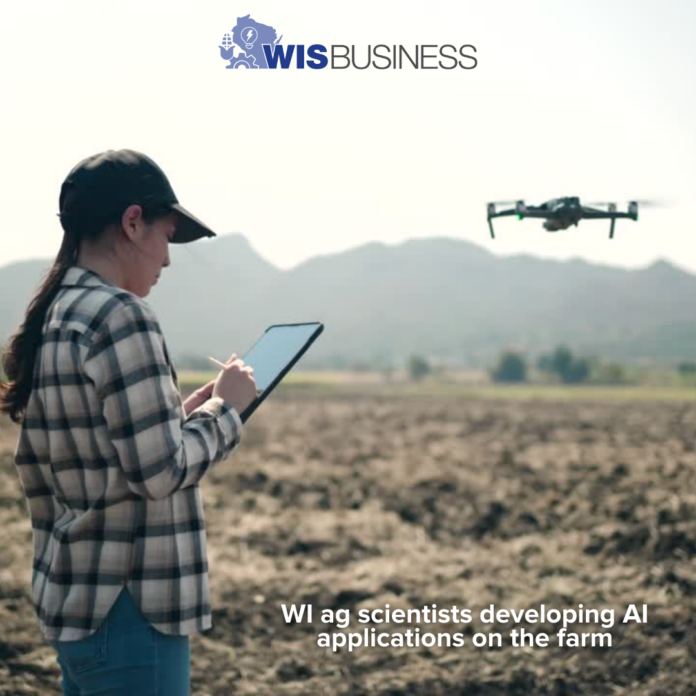Agricultural scientists in Wisconsin are advancing new AI applications on the farm, ranging from tracking animal movements for signs of disease to using drones and other automated equipment to monitor crops as they grow.
Greg Cisewski, dean of Northcentral Technical College’s School of Agricultural Sciences, Utilities and Transportation, yesterday discussed these and other applications during a meeting of the Governor’s Task Force on Workforce and Artificial Intelligence in Wausau.
“Talking about getting increased yield on our fields to grow more with less, so as we look to do that, we are trying to make sure every kernel of corn we plant is in the right spot so we can maximize our yields,” he said.
Some of this work is being conducted at NTC’s Agriculture Center of Excellence — the only working dairy farm and learning laboratory in the Wisconsin Technical College System, he noted.
“We also utilize our artificial intelligence to do some predictive analytics,” he said, noting the college is constantly tracking cows’ weight, milk production and other factors. “This is building tables and tables of information that we can bring out and utilize with our robots and other equipment to make predictions on where we need to go.”
All pastured animals at the center wear remote monitoring collars that allow scientists to track precise data, including how they’re chewing and walking. This information is being collected into a large database to inform decision making, and Cisewski says it helps cut down on the need for manual fieldwork as well.
“We optimize our feed, we optimize our milkings to make sure our cows as they’re producing, we help them produce quickly and without any stress,” he said.
Troy Runge, associate dean for research in the UW-Madison College of Agricultural & Life Sciences, highlighted a similar application that enables monitoring on a level that’s not possible using human workers. Using video cameras installed at dairy facilities, an AI system is able to map its body structure and predict the health of the animal based on how it moves.
“If you have hundreds and thousands of cows, you may not be able to have your eyes on each cow each time,” he said. “And having a computer, an AI program that’s actually monitoring health — it could be for mobility, it could be if they’re in heat, it could be for other issues, if they’re feeding, if they’re being social, if they’re happy. Happier cows actually have been shown to be more productive cows.”
While this application can offer a new level of understanding for farmers, Runge noted it takes a massive amount of data and “high-throughput” computing power.
Meanwhile, Cisewski noted automated milking machinery and feeding systems for cows eliminate the need for a “third shift” working at night.
“Our staff is there from six in the morning until five at night, and the rest of the time, the robots take care of the place,” he said. “So we really want to make sure we’re saving that labor and providing that quality of life for our farm staff.”
Along with collecting and sharing data, the automated feeding machinery also dispenses feed only at specific times to reduce waste, according to Cisewski.
As applications like these continue to reduce the need for human intervention in certain aspects of farm work, Runge underlined the importance of developing the workforce alongside AI technology. He noted the university is training many data experts and computer scientists to meet the AI needs of industry.
Looking ahead to future applications of AI, Cisewski said NTC is exploring “robotic gardening,” in which a system mounted above the plant beds will handle weeding, watering and other tasks. He said the plants raised in this environment will be compared with others, to determine the possible impacts of the technology in this space.
Other technologies being explored include deploying semi-autonomous tractors and using drones for spraying fields with chemical applications, he said.
Also during yesterday’s task force meeting, NTC President Jeannie Worden touted the college’s work to incorporate AI into its curriculum across all of its degree programs, and create a new short-term certificate for this summer that leads to a technical diploma and then an associate’s degree. Plus, the college is using AI for its own internal business practices, she said.
“I know I can speak for my counterparts in the Wisconsin Technical College System, that we all recognize the importance of AI and our role in preparing our students to be knowledgeable for the AI workforce,” she said.






